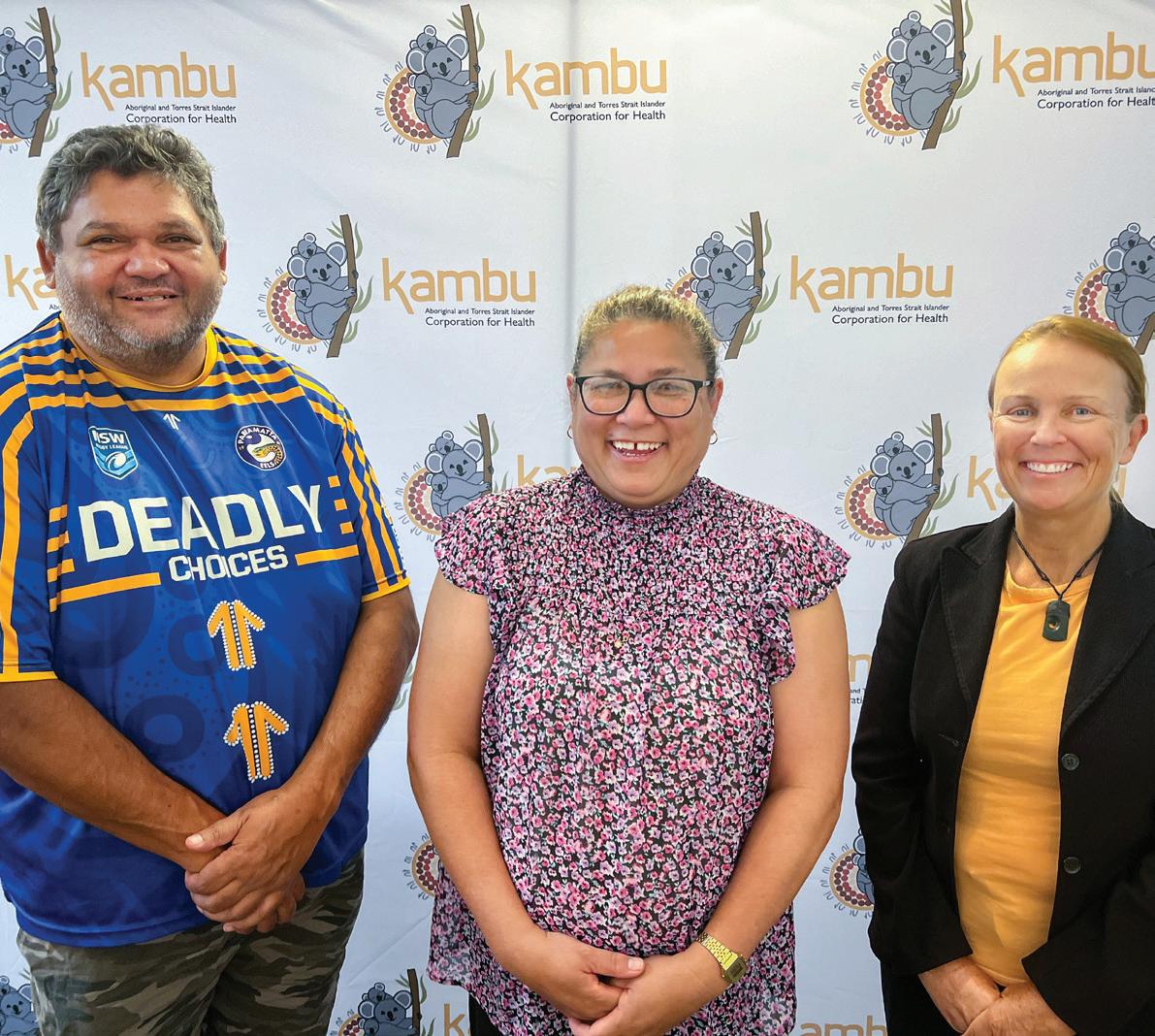
2 minute read
Support our First Nation communities in allied health
Closing the Gap is one of the most complex and challenging issues facing the nation. Training and supporting a new generation of First Peoples health practitioners is part of the solution.
In 2023, the University of Southern Queensland will offer will offer the inaugural Kambu Health First Nations Scholarship.
Advertisement
The scholarship was established through a founding gift from the Kambu Aboriginal and Torres Strait Islander Corporation for Health (Kambu Health) and is co-funded by the University. It will be awarded to a First Nations student studying in health and medical sciences, psychology and wellbeing, or nursing and midwifery programs.
Kambu Health is a community-run, not-for-profit charity that provides health services to Aboriginal and Torres Strait Islander people in the Ipswich and West Moreton region.
The scholarship aims to encourage First Nations students to undertake careers in health-related fields, boosting the First Nations health workforce.
Dr Anthony Bates, Executive Director of Health Services at Kambu Health, says most people are aware of the significant gap in health outcomes for First Nations people compared with their fellow Australians.
“You look at pretty much any health condition, any age range, basically every single aspect of the demographic, and there’s a significant gap in terms of life expectancy, quality of life outcomes, and health outcomes. Our goal is to really improve all of those,” Dr Bates says.
A lesser understood issue is the challenge to ensure that health services for First Peoples are delivered in culturally inclusive and safe spaces.
“When care is not provided in a way that actually addresses someone’s culture, their identity, often people can be hesitant or reluctant to seek services,” Dr Bates says.
University of Southern Queensland Academic Director (Health Partnerships) Professor Marion Gray agrees. “One of the things that’s really important is that, for a service to be truly culturally safe and appropriate, we need to have more First Nations health professionals actually working and delivering those services to their own communities.
“We’re hoping this boost in funding allows First Nations students a little extra money to cover costs and that it hopefully enhances their prospects.”
Research shows that someone from a specific area or region is more likely to return and work there after study. Professor Gray says this underpins the scholarship.
“It’s our responsibility to be training these students and offering opportunities,” she says.
At present, just 0.5 per cent of doctors and 1.3% of nurses working in Australia are Aboriginal and Torres Strait Islander.
Dr Bates says the benefits of this kind of partnership – and of funding a scholarship – are mutual and multi-faceted.
“Obviously it’s beneficial for the University and for the students, who are appreciative, but oftentimes they also want to give back. By partnering like this, not only are you benefiting the community and improving the way your organisation is perceived, but you’re giving the students a place to come. You’re essentially growing your own workforce.”










